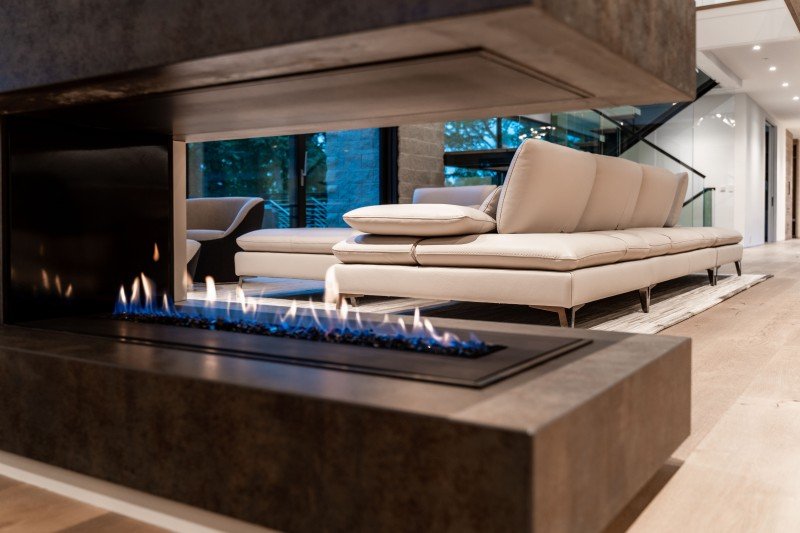Multi Fuel Stoves for Sale: A Comprehensive Guide
Multi fuel stoves have gained increasing appeal for many years due to their adaptability, efficiency, and visual appeal. Fireplace Deals can burn different kinds of fuel, such as wood, coal, and biomass, allowing property owners to pick the most cost-efficient and environmentally-friendly option based on their requirements. This article intends to supply an extensive overview of multi fuel stoves, their benefits, factors to consider for getting, different types readily available, and answers to often asked concerns.
The Benefits of Multi Fuel Stoves
Multi fuel stoves offer a series of benefits for homeowners aiming to optimize their heating options. A few of the essential benefits include:
- Versatility: The ability to utilize various fuels enables homeowners to adapt to changing scenarios, such as fluctuating fuel rates or availability.
- Cost-effectiveness: Depending on regional fuel prices, users might discover savings by burning less expensive fuels like wood or coal.
- Environmental Impact: Many multi fuel stoves discharge lower emissions than traditional heating systems, particularly when utilizing sustainably sourced biomass.
- Aesthetic Appeal: Multi fuel stoves add a touch of warmth and beauty to any living area, producing a comfortable atmosphere.
- Efficiency: Modern multi fuel stoves are created to make the most of combustion and heat output, providing an efficient heating option for homes.
Types of Multi Fuel Stoves
When thinking about a multi fuel range, it's vital to comprehend the various types offered on the market. Below are some common categories:
| Type | Description | Typical Fuel Sources |
|---|---|---|
| Wood Burning Stoves | Specifically created for burning wood logs and pellets. | Logs, wood pellets |
| Coal Stoves | Stoves optimized for burning coal, providing high heat output. | Anthracite, bituminous coal |
| Pellet Stoves | Usage compressed pellets made from wood or biomass, efficient burning. | Wood pellets, biomass pellets |
| Mix Stoves | Capable of burning both wood and coal, offering flexibility. | Wood, coal |
| Biofuel Stoves | Developed to burn liquid biofuels, promoting sustainability. | Bioethanol, biodiesel |
Considerations for Purchasing a Multi Fuel Stove
Before buying a multi fuel range, there are a number of elements to take into account to ensure the selected design meets heating requirements and preferences. Here are some vital considerations:
- Size and Capacity: Evaluate the heating requirements for the area and select a stove with the suitable output. This is generally determined in kilowatts (kW).
- Efficiency Ratings: Look for stoves with high efficiency ratings, which symbolizes much better fuel utilization and reduced emissions.
- Product and Build Quality: Opt for stoves made from durable products such as cast iron or high-grade steel that can hold up against heats.
- Price: The budget plan plays a considerable function in decision-making. Think about both the in advance expense and ongoing fuel costs.
- Installation: Some models might need professional setup or specific flue systems. Examine local policies and codes for compliance.
- Visual appeals: Consider the design and surface to ensure it matches your home decoration.
Frequently Asked Questions About Multi Fuel Stoves
1. Can I utilize any type of fuel in a multi fuel range?
Multi fuel stoves are created to use particular kinds of fuels. Always describe the maker's standards to know which fuels are compatible.
2. How do I preserve my multi fuel stove?
Regular upkeep consists of cleaning the flue pipe, looking for obstructions, and checking seals and gaskets. Following the producer's maintenance schedule is important for security and efficiency.
3. Are multi fuel stoves safe to use?
Yes, when effectively installed and preserved, multi fuel stoves can be a safe heating option. It is necessary to follow security guidelines and guidelines for setup.
4. Do I require a chimney for a multi fuel range?
Yes, many multi fuel stoves require a chimney or flue system to vent smoke and gases outside the home. Guarantee that the system is installed according to local structure codes.
5. What is the average life-span of a multi fuel stove?
With proper maintenance, a sturdy multi fuel stove can last anywhere from 15 to 25 years, depending upon use and care.
Multi fuel stoves offer a flexible and efficient heating solution for property owners, allowing them to pick their preferred fuel type based on cost and accessibility. By thinking about Large Fireplaces of stoves, their advantages, and aspects to consider when acquiring, individuals can make informed choices that will enhance their home's comfort. With a large variety of options available, potential purchasers should do extensive research, taking into account the stove's efficiency, fuel compatibility, and overall design to discover the best suitable for their needs.
In conclusion, while multi fuel stoves can appear like a huge financial investment, their flexibility and efficiency make them a beneficial addition to any home. Whether it's for supplemental heating or as the main source of warmth, a multi fuel stove provides a useful service for the modern house owner seeking to stabilize convenience with sustainability.

